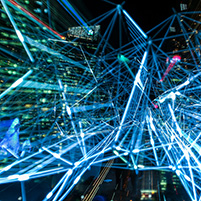DIRITTO E NUOVE TECNOLOGIE DELLA COMUNICAZIONE
DOI:
https://doi.org/10.4081/lettere.2021.778Abstract
NEW TECHNOLOGIES – LAW – RECIPROCAL IMPACT – POTENTIALS – DYSCRASIAS
This paper discusses the relationships between law and new communication technologies from a socio-legal perspective, with a focus on artificial intelligence and the access to Big Data. The author contends that, on the one side, such innovations have brought about a revolution in information about law, in that they make legislative processes easier, offer new keys for the interpretation of precedents, enable the administration’s inner machineries to be inspected or future deviances to be predicted and, no less important, impose a steady reorganization of work in all sectors, including that of the legal professions. On the other side, much still remains to be done in the field of the formation of law, even though experiments with ‘smart’ legislation and ‘smart’ contracts, as well as automated judicial decision-making, are already online. Here a dyscrasia still exists between legal and algorithmic languages. Law operates as a conditional action programme, based on the transmission of signs to be interpreted and the link between a factual premise and a deontic consequence (“if X, then Y”), as well as on the activity of “a third actor”, whether law-giver, administrator or judge, “who doubts and decides”. Conversely, learning machines operate by transmitting pre-packaged signals that exclude the “third actor’s” interpretative and decision-making activity, especially delicate when addressed to understanding the motivations of human action or facing an unforeseeable future. The law’s complexity therefore seems to resist algorithmic regulation and the question, nowadays, is whether technologies will adapt to the law and leave room for human intervention, or whether they will impose a kind of simplified law, in which human intervention will be annulled or drastically reduced.
Downloads


